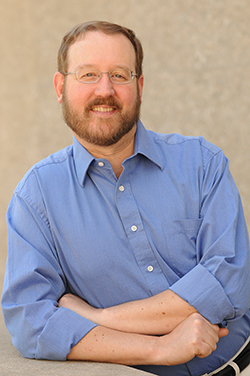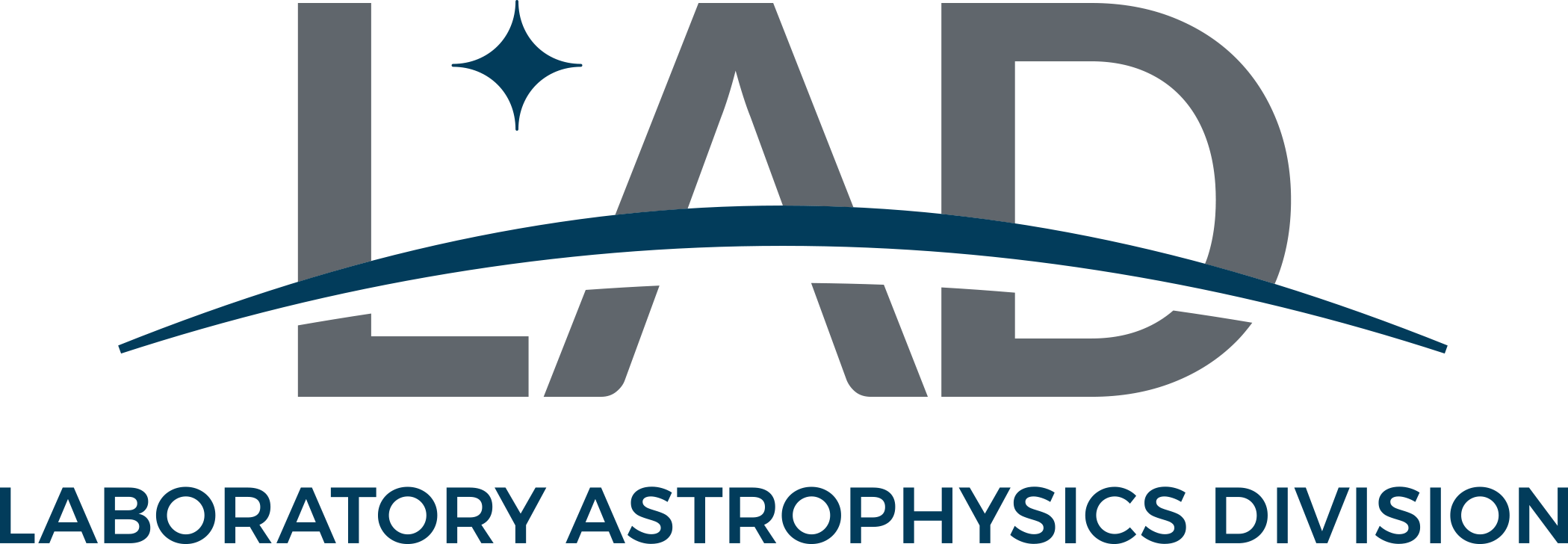You are here
2021 Laboratory Astrophysics Prize
2021 LAD Laboratory Astrophysics Prize Goes to Geoffrey Blake
 The Laboratory Astrophysics Division (LAD) of the American Astronomical Society (AAS) is awarding its 2021 Laboratory Astrophysics Prize to Prof. Geoffrey Blake of the California Institute of Technology. This prize is given for his fundamental contributions to spectroscopic and observational studies of the chemistry of the interstellar medium, star-forming regions, disks, comets, and exoplanetary atmospheres.
The Laboratory Astrophysics Division (LAD) of the American Astronomical Society (AAS) is awarding its 2021 Laboratory Astrophysics Prize to Prof. Geoffrey Blake of the California Institute of Technology. This prize is given for his fundamental contributions to spectroscopic and observational studies of the chemistry of the interstellar medium, star-forming regions, disks, comets, and exoplanetary atmospheres.
The Laboratory Astrophysics Prize, LAD’s highest honor, is given to an individual who has made significant contributions to laboratory astrophysics over an extended period of time. For at least the past three decades Prof. Blake has been a leading figure in laboratory astrophysics, pioneering new experimental techniques while blazing new paths in observational astrophysics. As a graduate student he helped to develop two experimental techniques to study transient species and stable molecules and applied them to the submillimeter spectra of molecular clouds. He later extended this approach to make the first measurement of the electric dipole moment of a molecular ion and developed the new field of terahertz (THz) vibrational-rotational tunneling spectroscopy while a postdoctoral associate. After he joined Caltech as an assistant professor, he applied these methods to astronomical and planetary ices and biopolymers.
More recently, Prof. Blake’s research has focused on the evolution of molecular complexity in star- and planet-formation and in protoplanetary disks through observation, laboratory study, and radiative transfer modeling. To facilitate these measurements he made contributions to new experimental approaches including in the microwave and THz domains. This led to his discovery of interstellar propylene oxide and measurements of optical constants of gases, ices, and refractory materials from the far-infrared into the millimeter-wave spectrum. Prof. Blake is also known for his extraordinary dedication to the mentoring of students and early career scientists.
Prof. Blake received his BS in chemistry from Duke University and his PhD in chemical physics from the California Institute of Technology under the supervision of Prof. Thomas G. Phillips. He was a National Science Foundation (NSF) Predoctoral Fellow at Caltech, a Miller Basic Research Fellow at the University of California, Berkeley, and then joined Caltech as a professor of cosmochemistry and planetary sciences. In 1999 he was appointed Professor of Chemistry at Caltech. Prof. Blake was a David and Lucille Packard Fellow and an Alfred P. Sloan Research Fellow and received an NSF Presidential Young Investigator Award. He has played a large role in service to the greater astrophysics community, serving as deputy director of the Owens Valley Radio Observatory; scientific advisor to numerous astronomical observatories, including the National Radio Astronomy Observatory, the Atacama Large Millimeter/submillimeter Array, the Spitzer Space Telescope, and the Stratospheric Observatory for Infrared Astronomy; and member of the NSF Astronomy Portfolio Review Committee.
The LAD Laboratory Astrophysics Prize includes a cash award, a framed certificate, and an invited lecture at a meeting of the Laboratory Astrophysics Division.
Contacts:
Phillip C. Stancil
LAD Chair
Department of Physics and Astronomy
University of Georgia
+1 (706) 542-2485
Rachel L. Smith
LAD Secretary
North Carolina Museum of Natural Sciences /
Department of Physics and Astronomy
Appalachian State University
+1 (919) 707-8239
Geoffrey Blake
Division of Geological and Planetary Sciences
California Institute of Technology
+1 (626) 395-6296
Photo (900 x 1,355 pixels @ 300 dpi, 806 kilobytes):
https://lad.aas.org/sites/lad.aas.org/files/Geoffrey_Blake_LAD_2021.jpg
Prof. Geoffrey Blake (Caltech), recipient of the 2021 Laboratory Astrophysics Prize from the American Astronomical Society’s Laboratory Astrophysics Division. Courtesy G. Blake.
The AAS Laboratory Astrophysics Division (LAD) advances our understanding of the universe through the promotion of fundamental theoretical and experimental research into the underlying processes that drive the cosmos.
The American Astronomical Society (AAS), established in 1899 and based in Washington, DC, is the major organization of professional astronomers in North America. The mission of the AAS is to enhance and share humanity’s scientific understanding of the universe.
